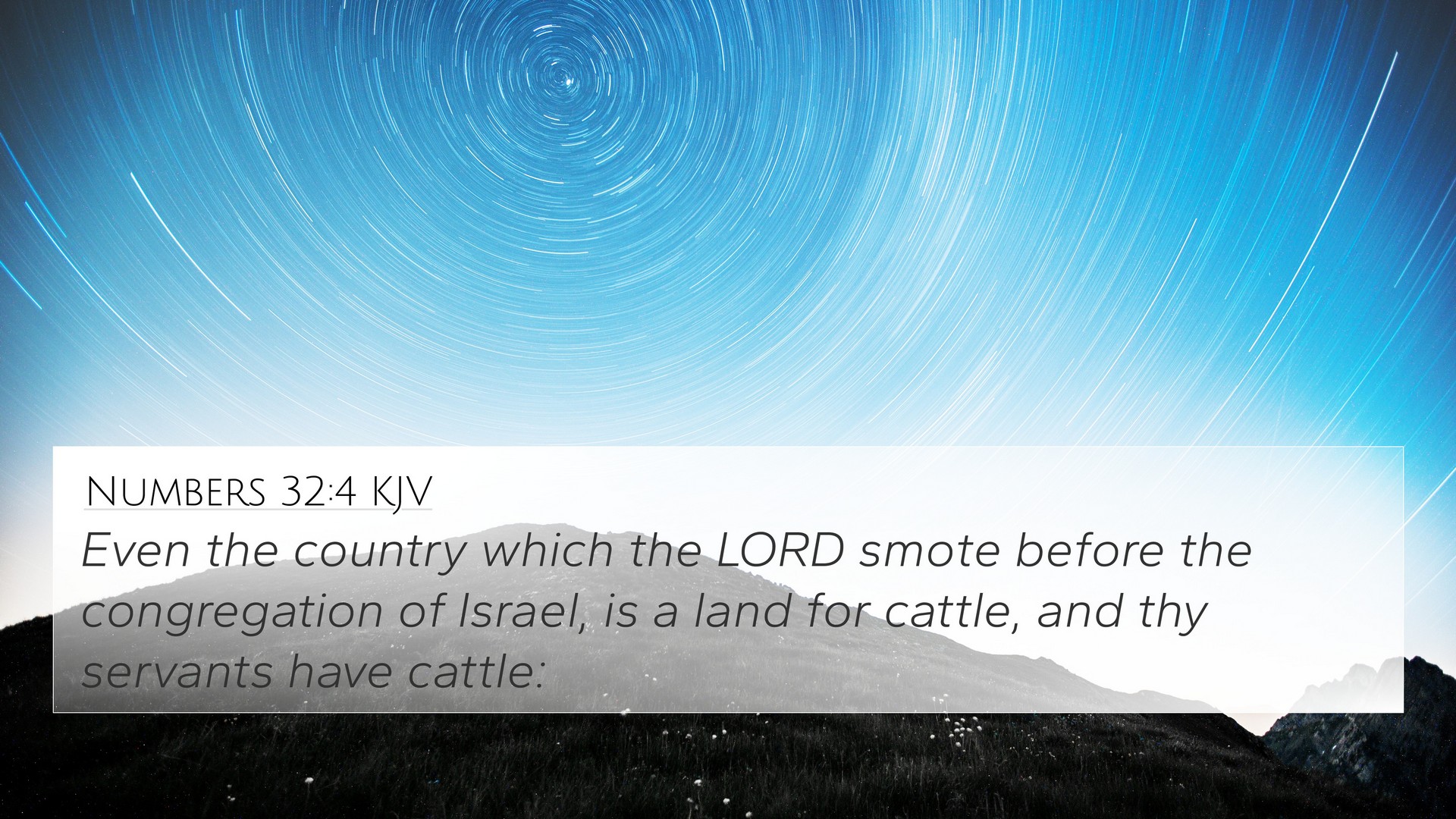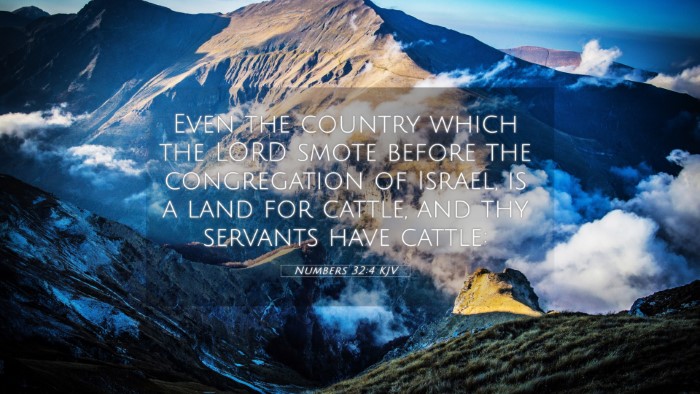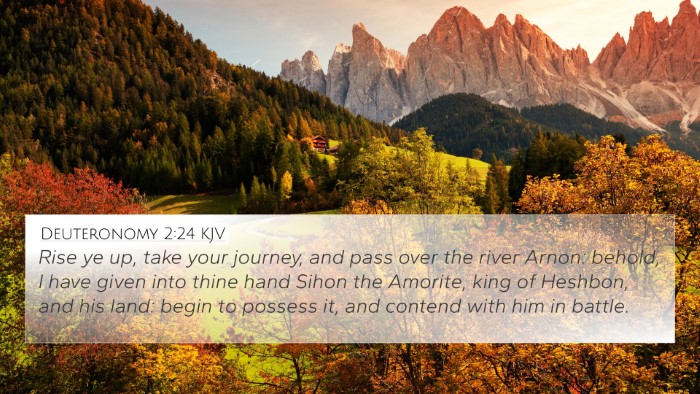Bible Verse Analysis: Numbers 32:4
Verse: "Even the country which the LORD smote before the congregation of Israel, is a land for cattle, and thy servants have cattle." (Numbers 32:4)
Meaning and Interpretation
This verse highlights the request made by the tribes of Reuben and Gad to Moses, seeking to settle in the land of Gilead, which they deemed suitable for their herds. The significance of this request lies not only in the practical implications for these tribes but also in the overarching narrative of Israel's journey to the Promised Land.
Contextual Background
The chapter takes place after the Israelites have defeated the kings Sihon and Og in their journey through the wilderness. The lands they conquered were viewed as a fertile area for livestock, which was vital to the agrarian society of ancient Israel.
Insights from Commentaries
- Matthew Henry: He emphasizes that the land they desired was a gift from God, who had enabled them to defeat their enemies. Henry notes the importance of recognizing God's provision in our decisions.
- Albert Barnes: Barnes discusses the implications of the request, indicating that while the land was good for cattle, the tribes needed to ensure they would fulfill their responsibilities to their fellow Israelites in battle.
- Adam Clarke: Clarke adds a practical interpretation by detailing how the land’s suitability for grazing was critical for the prosperity of the tribes, emphasizing the balance between their needs and the divine purpose.
Thematic Connections
This verse serves as an important intersection for many themes in Scripture:
- Divine Provision: The request of Reuben and Gad reflects the recognition of God's provision in offering them fertile land, paralleling biblical instances where God provides for His people (e.g., Psalm 23:1).
- Unity and Responsibility: Despite their desire for specific land, the tribes were still part of Israel, highlighting the need for unity and collective responsibility in the community (e.g., Ecclesiastes 4:9-12).
- Faith and Obedience: Their request raises the question of obedience to God's commands to enter the Promised Land (e.g., Joshua 1:9).
Bible Verse Cross-References
Understanding Numbers 32:4 is enriched through cross-referencing with the following verses:
- Deuteronomy 3:12-13 - Discusses the territories acquired by these tribes.
- Joshua 1:12-15 - Explains the stipulation that these tribes help their brothers conquer the land before settling down.
- Psalm 78:70-72 - Highlights God choosing David to shepherd His people, showing God’s guidance and provision.
- Ezekiel 34:23-24 - God’s promise of a shepherd who will care for His people, reflecting the leadership theme.
- Numbers 32:6 - Moses’ response and the emphasis on duty and responsibility carry profound weight in the narrative.
- Exodus 3:8 - God’s promise to deliver Israel to a land flowing with milk and honey parallels the agricultural suitability of Gilead.
- John 10:11 - Jesus portrays Himself as the Good Shepherd, reflecting the themes of guidance and provision echoed in Numbers.
Practical Applications
The verse encourages readers to evaluate their desires in light of God's providence and the greater community's needs. The request for land should prompt us to consider:
- Community Engagement: How can we balance our personal needs with those of our community?
- Stewardship: How do we recognize and utilize God's blessings for our purposes and responsibilities?
- Faithfulness: Are we obedient to God's calling even when it seems to diverge from our personal desires?
Conclusion
Numbers 32:4 serves as a pivotal moment in understanding the dynamics of the Israelites' journey, encapsulating God's provision, the essence of communal responsibility, and the tensions between personal desire and divine command. The insights drawn from public domain commentaries deepen the understanding of this verse, and inspire believers to seek unity, recognize God's blessings, and navigate their faith journeys with a commitment to others.





